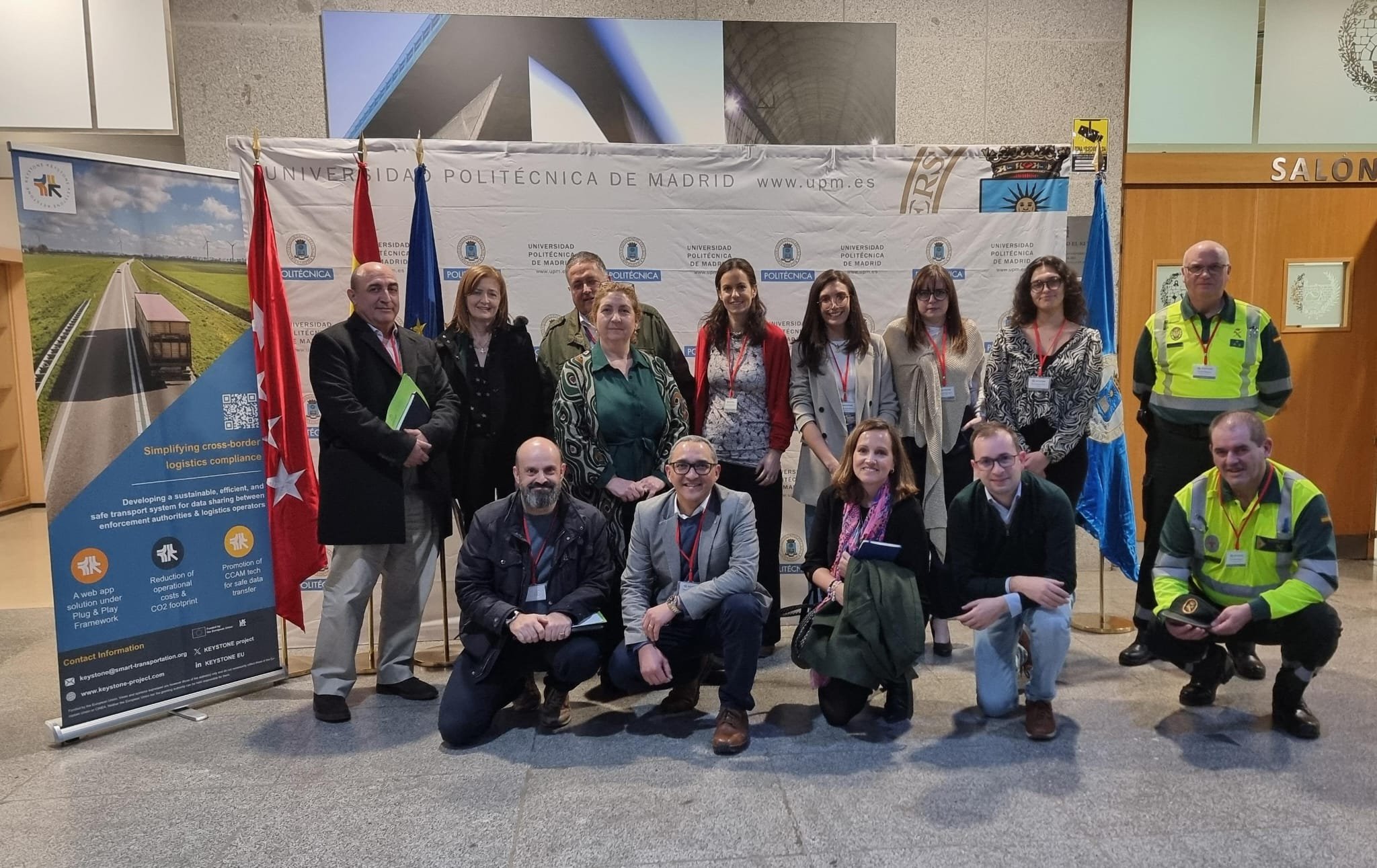Successful Focus Discussion Group Explores Challenges and Opportunities in Spanish Transportation Logistics
KEYSTONE Focus Group Participants
The Transport Research Centre (TRANSyT) of the Universidad Politécnica de Madrid (UPM), in collaboration with Coventry University and the Asociación Española de la Carretera, recently organised a Focus Discussion Group (FDG) to delve into the intricacies of transportation logistics within the national scope of Spain. The initiative aimed to address the primary challenges, opportunities, and requirements shaping the landscape of transportation logistics in the country.
The FDG took place at the School of Civil Engineering (UPM) in Madrid, Spain on the afternoon of 25 January 2024.
Professionals from the Spanish transportation and logistics sector actively participated in the Focus Group, which included high-ranking representatives from the three key stakeholder groups: logistics operators, enforcement authorities, and freight terminals.
Among the esteemed participants were representatives from various influential organisations, such as:
Civil Guard (Guardia Civil): One of the two national security forces in Spain. The Traffic Unit's mission encompasses the surveillance, regulation, assistance, and control of traffic and transportation, ensuring the safety of circulation on interurban roads.
Spanish Ministry of Transport and Sustainable Mobility: Responsible for the administrative control, organisation, and regulation of terrestrial, aerial, and maritime transport services.
Port of the State (Puertos del Estado): A public body, under the Ministry of Transport and Sustainable Mobility, with comprehensive responsibilities over the entire state-owned port system.
Directorate-General for Traffic ( Dirección General de Tráfico): An autonomous body of the Spanish government, responsible for executing road policies on Spain's state-owned roads.
Fundación Corell: A non-profit foundation dedicated to promoting and developing road transport, fostering environmental respect, and providing training for stakeholders in road transport.
ANETRA: National Association of Bus Transport Entrepreneurs, advocating for the interests of its members and the Collective Road Transport Sector in legal, administrative, and legislative domains.
USYNCRO: Technology developers focused on addressing the current needs of the logistics chain. They represent an investment in resolving the challenges of international logistics in a technological, connected, and real-time future.
The collaborative session proved to be invaluable, offering a platform for the exchange of ideas and expertise among these key stakeholders. Discussions centred around the challenges and opportunities within the Spanish transportation and logistics sector, paving the way for innovative solutions in the ever-evolving landscape. The Spanish stakeholders added an important dimension to the overall picture of platforms, legislations and cultural complexities of the European transport and logistics ecosystem.
The following challenges and barriers were discussed with particular interest and intensity by the participants and have therefore been identified as key factors in the further digitisation and standardisation of international logistics. While the first two topics are aligned with focus groups that took place also in Italy and the UK and can therefore be considered shared challenges across countries), the last point presented a new subject, which had not come up before in previous conversations:
The multitude of existing freight and logistics management and enforcement platforms on the market today is high, but unfortunately, there is little to no interoperability or integration possible between them;
The legal requirements that different levels of governance bodies need to adhere to (including municipal, national and European levels) are not always aligned or integrated and/or difficult to integrate in a compatible solution.
Some cultural issues (e.g., the preference to adhere to paper-based documentation in some companies, regions or institutions) hinder the adoption of new solutions in effective ways and delay the uptake of digitisation in the sector. This implies that new solutions should be accompanied by measures (such as training) or regulations to raise the acceptance of digital documentation platforms instead of being perceived as an additional layer of difficulty.
This successful FDG signifies a noteworthy progression in comprehending the concerns and requirements of the primary stakeholders. The insights gained will be seamlessly integrated into the ongoing development of the KEYSTONE project.



